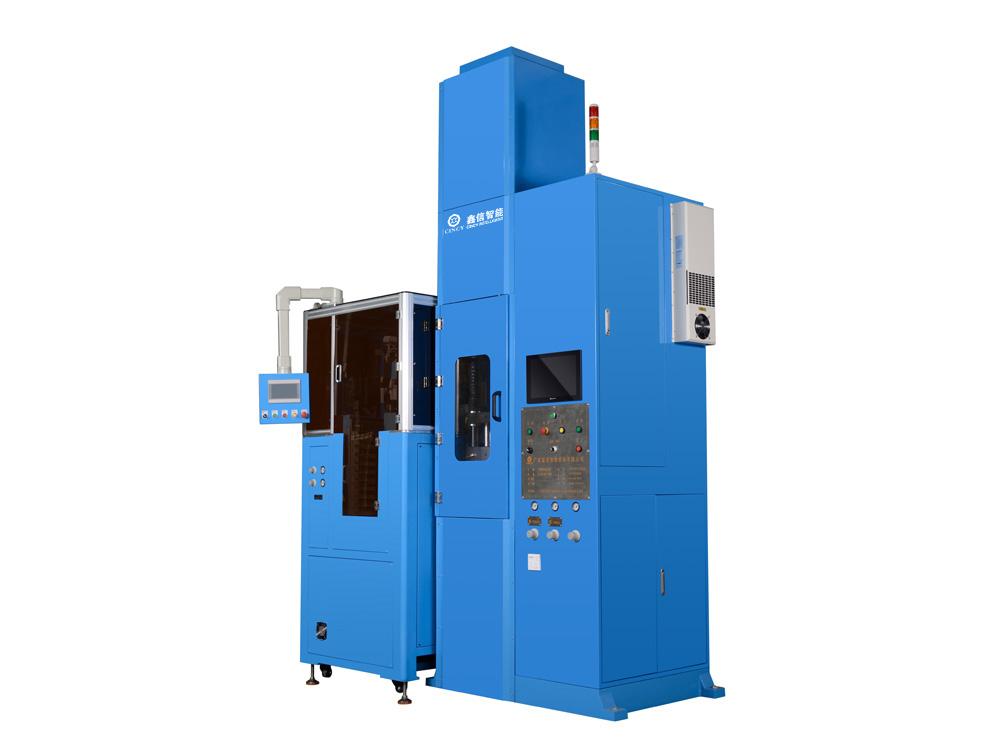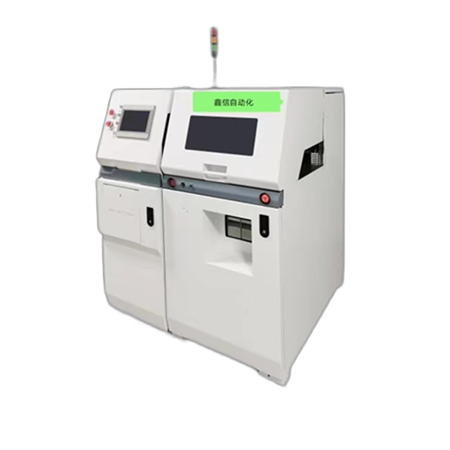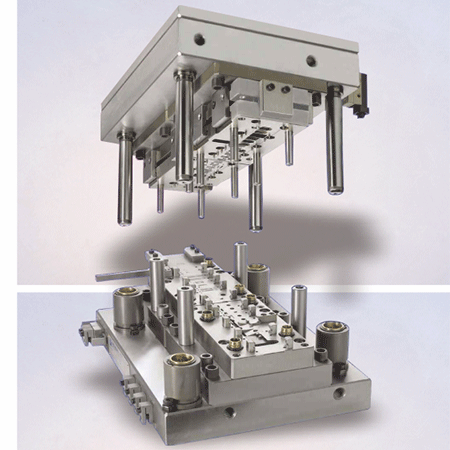
Semiconductor molds: the cornerstone of precision manufacturing
2024-8-30 1:42:28
As an indispensable part of the semiconductor industry, semiconductor molds are of great importance. In the manufacturing process of semiconductor devices, molds are not only the key tools to achieve high-precision processing, but also an important guarantee to ensure product quality and performance. This article will discuss in detail the material selection, design principles, and role of semiconductor molds in the manufacturing process, but will not discuss specific application areas or future prospects.

1. Material Selection of Semiconductor Molds
The material selection of semiconductor molds is the basis for ensuring their performance and service life. Common semiconductor mold materials include high-speed steel, high-carbon steel, alloy steel and cemented carbide.
High-speed steel: High-speed steel is an ideal choice for manufacturing high-speed cutting tools and stamping dies due to its high hardness, high wear resistance and high heat resistance. In semiconductor manufacturing, high-speed steel molds can meet the requirements of high-precision and high-efficiency processing and ensure precise forming of metal materials.
High-carbon steel: High-carbon steel has high hardness and strength, and is widely used in the manufacture of cutting tools, springs and stamping dies. However, in the field of semiconductor molds, due to its relatively low hardness, it is prone to wear and deformation, so its application is subject to certain restrictions.
Alloy steel: Alloy steel improves the strength, hardness and wear resistance of the material by adding a variety of alloying elements. In semiconductor mold manufacturing, alloy steel molds meet the requirements of high-precision processing with their excellent wear resistance and processing performance.
Cemented Carbide: Cemented carbide is a mixture of metal powders such as tungsten cobalt, tungsten titanium and carbide powder with high hardness, high strength and high wear resistance. In semiconductor molds, cemented carbide molds are particularly suitable for high-precision and high-efficiency processing scenarios due to their extremely high wear resistance and processing performance.
2. Design Principles of Semiconductor Molds
The design of semiconductor molds must follow a series of strict principles to ensure the accuracy, durability and reliability of the molds.
Precision requirements: Semiconductor devices have extremely high size and shape accuracy requirements, so the mold design must ensure that the processing accuracy reaches the micron level or even the nanometer level.
Structural rationality: The design of the mold structure should be reasonable in order to reduce stress concentration and deformation and increase the service life of the mold. At the same time, the ease of disassembly and maintenance of the mold must also be considered.
Material compatibility: The selection of mold materials must be compatible with the material to be processed to ensure that the mold does not wear out too quickly or become difficult to process during use.
Thermal stability: The semiconductor manufacturing process often involves high-temperature environments, and the mold material must have good thermal stability to prevent deformation and failure caused by thermal expansion or thermal stress.

3. The Role of Semiconductor Molds in the Production Process
Semiconductor molds play an important role in the manufacturing process of semiconductor devices.
Mold: The mold processes metal materials into the required shape and size through processes such as stamping and extrusion. This process requires the mold to have high precision and high wear resistance to ensure that the processed semiconductor devices meet the design requirements.
Quality Control: The precision and stability of the mold directly affect the quality of the semiconductor devices. By optimizing mold design and material selection, processing accuracy and product quality can be improved, and the reject rate can be reduced.
Production efficiency: Efficient mold design can shorten the processing cycle and improve production efficiency. In the semiconductor industry, efficient production is essential to reduce costs and improve competitiveness.
Process innovation: As semiconductor technology continues to evolve, so do the demands on molds. Mold manufacturers must continue to innovate and develop mold products that adapt to new technologies and processes to meet market demands.
In short, as a key tool in semiconductor manufacturing, semiconductor molds play a vital role in material selection, design principles and production processes. By continuously optimizing mold design and improving material performance, the processing accuracy, product quality, and production efficiency of semiconductor devices can be further enhanced, thus promoting the sustainable development of the semiconductor industry.
Latest News
- Powder moulding machine selection guide: how to choose the right equipment for your production needs
- There are many factors to consider when selecting a powder moulding machine to ensure that the equipment selected will meet production requirements. The followi...
- Dressing and forming equipment: a tool to ensure part accuracy and quality?
- Dressing and forming machines play a vital role in the manufacturing industry. Through a series of precise mechanical operations, they ensure that workpieces me...
- Powder Metallurgy Mold: A Key Component in the Metal Forming Process
- Powder metallurgy dies are an essential key component in the metal forming process. They use powder metallurgy technology to press metal powder into shape and t...
- Vertical powder forming machine: an efficient and precise industrial manufacturing tool
- In the rapid development of modern manufacturing, vertical powder forming machine, as an advanced manufacturing process equipment, is playing an increasingly im...
- Powder metallurgy mold: the core of efficient metal forming process
- Powder metallurgy mold, as a key component in the metal forming process, is becoming an indispensable and important tool in the manufacturing industry with its ...





